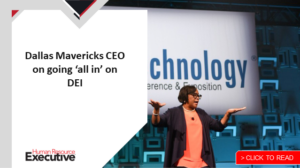Over the past 10 years, many companies have adopted diversity, equity and inclusion platforms to signify their commitment and support of social issues. This movement has accelerated since the reckoning in June 2020. At that time, many companies publicly professed their solidarity with social justice causes through #blackouttuesday, posted black squares across their social media channels and offered similar gestures. While the intentions may have been pure, the social media trend came with some backlash. This was especially true for organizations that had been silent on such topics up to that point. And that begged the question: Who was merely engaging in “performative DEI,” hopping on the bandwagon because it was the thing to do at the time and not out of true sincerity?
What does performative DEI look like?
How can you tell if your organization has been performative, as opposed to authentically supportive of DEI? One way is to assess the nature of the gesture. Was it mostly “I stand with you” messaging? Did it include commitments to do anything meaningfully different or supportive in the future? If it did, has the company made good on those commitments? Signs of performative DEI include offering lip service sans commitments, engaging in milquetoast “efforts” amounting to checking a box and writing a check as a “one and done.” Organizations that do this are not taking DEI seriously and deserve the “performative” moniker. One could argue that it’s worse than making no gesture at all.
See also: What HR needs to do to combat the age-old ugly narrative of antisemitism
Let’s consider organizations that have made authentic promises to stick with their support of DEI. The next question to ask is, do they consider it part of their core strategy? If they do not, they aren’t likely to invest time and money into DEI and earn the performative label. A recent report showed that while DEI is considered valuable and a priority, leadership is not investing adequate resources to create significant change. Without proper investments, change is unlikely to be sustainable. Companies that are serious about DEI must specifically allocate resources for their proposed diversity commitments, regardless of size.
How to get more serious about DEI
Companies need a clearly defined corporate social responsibility strategy to be taken seriously on the DEI front. Any organization can do this in its own way, no matter its size or the availability of resources. If you want to authentically commit to DEI, your company should consider the following:
- Establish a DEI strategy that is core to your company’s values and mission and aligned with your overall business strategy.
- Track and publish your DEI metrics and efforts, establish goals and targets, and outline concrete actions to achieve them.
- Establish buy-in across the organization. Your entire leadership team should embrace and model DEI-supportive behavior that is not siloed from everyday work. That said, it cannot be solely a top-down effort. Companies should not rely solely on HR or a small group of motivated individuals to lead the effort. Rather, DEI should be engrained and celebrated in the company’s culture, and activities should be funded.
- Focus on attracting and retaining diverse talent. Recruiting talent from all backgrounds is important but not enough. Once you achieve a diverse workforce, they must want to stay. The best retention policy is created by fostering an inclusive workplace. There are many tools to help support this, like CliftonStrengths, which helps employees understand their strengths and how to better interact with their colleagues. Retention is a key metric of inclusivity as it proves a company has a culture that people gravitate towards and remain in.
- Support organizations, such as nonprofits, with time and money that have core missions aligned with your DEI strategy. On just about every DEI topic, there are people out there doing the work. Align yourself with them so that your efforts scale and can have broader reach and impact.
- Communicate your DEI positions and strategy, along with your challenges and successes, with regularity. Do not underestimate the power of your sharing and the inspiration you might provide to companies that are well-intentioned but are struggling with where to start. It will be supportive to you as an employer as well. Recent Glassdoor data reveals that 76% of all candidates, regardless of background, evaluate diversity and inclusion in their job search and look for evidence that it is valued.
 DEI with intention
DEI with intention
Many organizations are at the beginning of their DEI journey and are continuing to learn how best to incorporate DEI into their overarching business strategy. It is arguably easier for large organizations to engage in high-impact efforts that require significant resources—and they should be held to a higher standard. However, it is worth noting that small- and medium-sized businesses, especially in labor markets that are predominantly non-diverse, can do many of the items above. Even small steps such as being purposeful about word choice can make a big impact. These companies doing this should be commended for their efforts.
Related: 6 ways tech firms can create a more gender-inclusive workforce
DEI cannot be an afterthought for any organization. It needs to be core to a company’s strategy and emanate across the culture. It needs to be championed at every level of the organization. Companies must be mindful of the unique and specific needs of the diverse workforces they’ve committed to cultivating. This includes addressing pay, gender and health inequities inherent in every employee population.
While there is plenty more to do, there has been great progress in DEI. Doing good is good business, and the more intentional we are about DEI, the better outcomes we’ll have as a society.

